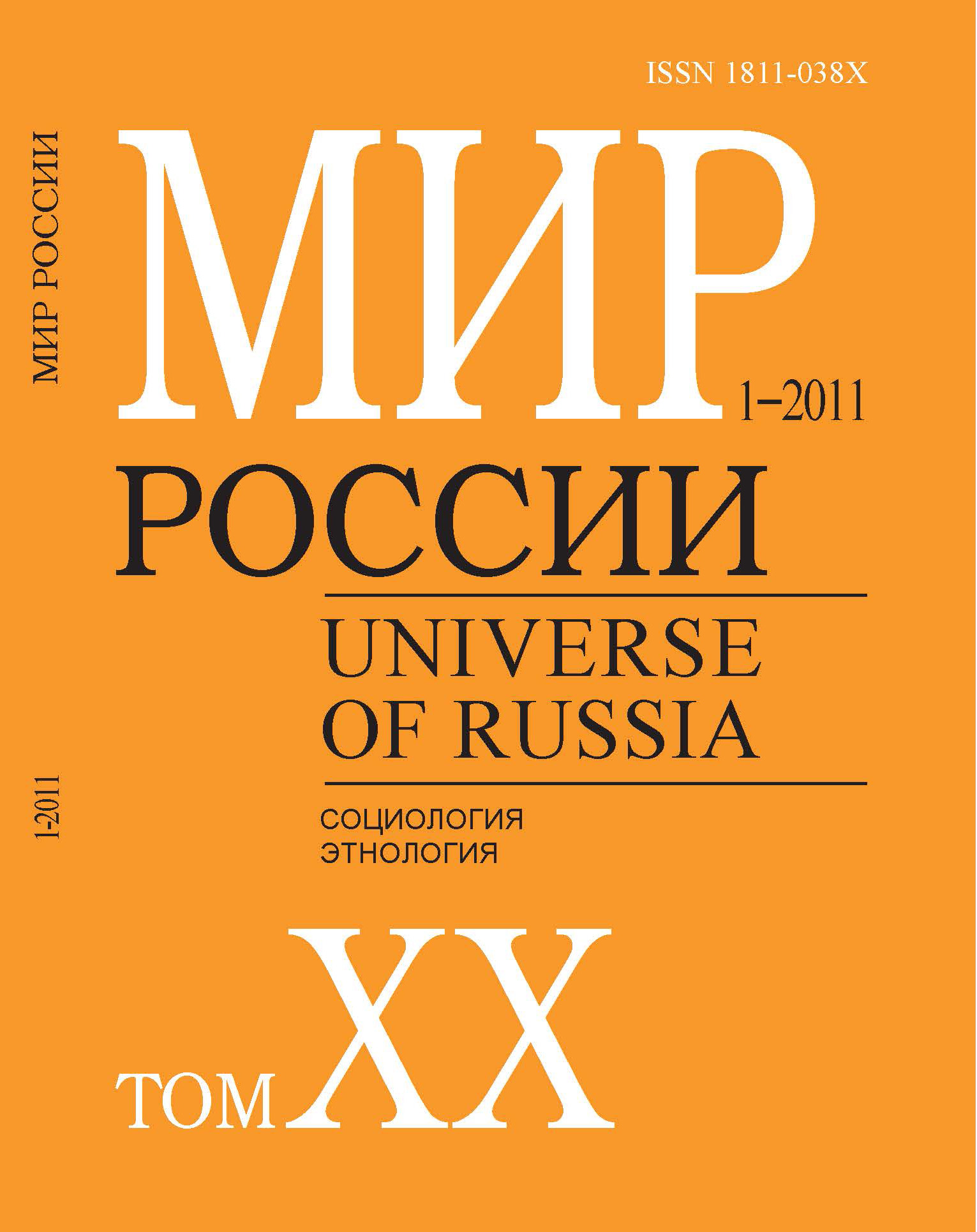Integration of Migrants: Challenges, Policies, Social Practices
Abstract
Vladimir Mukomel — Head of the Department of Studying of Migratory and Integration Processes, Institute of Sociology, Russian Academy of Sciences. Address: Bldg. 5, 24/35, Krzhizhanovskogo St., Moscow, 117218, Russian Federation. E-mail: mukomel@mail.ru
Several key topics are discussed in the article: alternatives to the integration policy; socio-cultural restrictions for integration and problems of migrant social exclusion; the profile of the integration policy; and transient and fundamental problems of integration policy implementation.
It is impossible to overcome the negative tendencies of Russia’s population reduction in the foreseeable future. The reduction of the able-bodied population should be emphasized. For Russia, immigration is not a matter of a choice but rather a matter of necessity. Russia has to prepare for an increasing influx of migrants of different ethnic origins. It is necessary to correct the migration policy to adapt to incoming migrants. Issues of immigrant socialization, their adaptation and integration have become of major importance. The focus of Russia’s migration policy has to be shifted towards the socio-cultural sphere.
At present, there are certain socio-cultural restrictions to the integration policy: low integration potential of the recipient environment; counteraction of the recipient population in local communities; relatively weak adaptive capabilities of migrants; social practices of the interaction of recipient population with migrants; the recipient population’s particular historical experience and traditions of inter-cultural interaction; and peculiarities and stereotypes of Russian public conscience.
Anti-migrant attitudes prevail in Russian society. The greater part of the population approves administrative and other measures aimed at the prevention of migrant adaptation. The problem is aggravated by the fact that a part of migrants neither strive for adaptation to the recipient community, nor is it ready for adaptation.
Social practices of migrant primary adaptation differ from formal procedures prescribed by the legal norms, and this difference is significant. Routine everyday practices of obtaining work permissions, looking for jobs, registering at migration service bodies and obtaining medical documents enforce the development of informal business practices; all of which are intimately connected to the state bodies. Thus, a peculiar market of informal services provided by legal entities and individuals has emerged in Russia. This market has multibillion-ruble turnovers. The institutionalization of illegal practices employed by the main actors of integration policy contributes to the social exclusion of ethnic migrants.
The process of ethnic groups’ stratification in Russia is under way. Along with other social groups, ethnic groups are being embedded in the existing social hierarchy, which assigns migrant minorities to particular social niches. The growing inequality of social distances between these ethnic groups poses a direct threat to the very existence of Russian society and the stability of the country.
Different categories of migrants require different degrees of integration. For some groups, the primary adaptation is sufficient, while other groups need further integration. Integration policy has to be differentiated with respect to particular migrant groups — home-coming nationals, immigrants, labor migrants — and should be based on clear and distinct procedures of linguistic, cultural, social, economic adaptation and integration. It is necessary to build up a system to be an adaptation and integration elevator. This system has to provide the state with the possibility to select migrants at every stage in accordance with the public requirements, while at the same time, migrants should be given an opportunity to plan their careers based on existing opportunities.
The implementation of integration policy goes hand in hand with the solution of fundamental problems. Among these, the following have to be mentioned: lack of public consensus with respect to the strategy of Russia’s development; lack of institutions designed to counter xenophobia; inefficiency of institutions of migrant socialization, their adaptation and integration; lack of instruments of integration policy towards different actors (federal bodies, local government bodies, employers, other business structures, recipient population, migrants); interests coordination and reconciliation; and lack of distinct delimitation of actors’ competencies.
Alongside with the change in social environment, serious institutional transformations are required, particularly in the sphere of education, media, the legal system, and in the military and law enforcement bodies.






